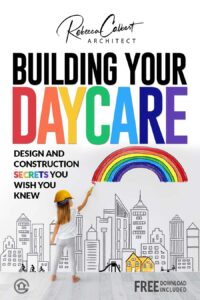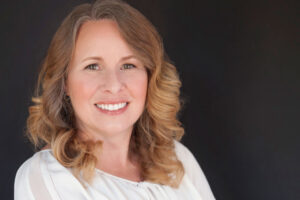Commercial Mortgages 101
When you’re trying to buy a business property, you will have many financing options available to you. Depending on your personal situation and the type of property that you are looking to purchase, different loans may be better for you than others.
When it comes to commercial mortgages, there are some important details that you need to understand in order to choose the best loan for your specific needs. Commercial mortgages have several key differences from residential mortgages.
They are designed for businesses instead of individuals, can be used for a wider variety of properties and carry different risks for the lender. Here are 5 things you’ll need to know about commercial mortgages if you’re interested in using this type of financing to buy a business property.
What is a Commercial Mortgage?
In a nutshell, a commercial mortgage is a type of financing designed for businesses to purchase commercial properties.
The lender will give you the money to make the purchase, then you will make monthly payments over a set period of time until the loan is paid off in full. A commercial mortgage will be secured by the property that you are buying.
This means that if you can’t make your payments, the lender will have the right to take the property and sell it in order to recoup the money that you owe them.
Why Would You Need a Commercial Mortgage?
Commercial mortgages are different from residential mortgages in a few key ways. First, they can be used to purchase a wider variety of properties.
Residential mortgages are typically used to purchase a primary residence where you will live for many years. Commercial mortgages, on the other hand, can be used to purchase an office building that you will own for only a few years before reselling it to someone else.
Apart from being able to buy a wider range of properties, commercial mortgages also allow you to borrow more money. Residential mortgages are capped at a certain amount (about $453,100 as of 2018), while commercial mortgages can be used to borrow as much as the lender will allow.
Most commercial mortgages have interest rates that are higher than residential mortgages. This is because of the increased risk that the lender will not be repaid.
How Much Can You Borrow Using a Commercial Mortgage?
The maximum amount that you can borrow using a commercial mortgage will depend on a variety of factors, including the type of property that you are purchasing, the value of that property and your personal financial situation.
For example, if you want to buy a commercial property that is valued at $1 million, you might only be able to borrow half that amount using a commercial mortgage. This is because the lender will want to make sure that they will be able to get their money back if you can’t make your payments.
Some types of commercial mortgages may have higher limits than others. For example, SBA 7A loans are designed for borrowers who don’t have a lot of cash on hand, so they have higher borrowing limits.
The Different Types of Commercial Mortgages
There are many different commercial mortgages available to borrowers with a wide variety of credit profiles and financial situations.
Here are some of the most common types of commercial mortgages.
Commercial Mortgage: This is a standard mortgage where you borrow money from a bank or other lender and agree to pay it back over a set period of time with interest.
Commercial Bridge Loan: This type of loan is designed to bridge the gap between the moment when you have the cash to close on the property and the moment when you can get the loan that you need to make the purchase.
Commercial Hard Money Loan: If you don’t have great credit and you need a large amount of money, a commercial hard money loan may be the best option for you.
These loans are often very short-term, with repayment dates of only a few months. SBA 7A Loan: If you are buying a commercial property that you plan to operate as a business, an SBA 7A loan could be a good option for you. These loans only require a 3% down payment and are available to people with credit scores of 650 or higher.
Where to Find Good Deals on Commercial Mortgages
Lenders are in the business of making money, so you can expect them to charge you a high interest rate for the privilege of borrowing their money. However, there are some things that you can do to try to get a good deal on your commercial mortgage.
First, try to get pre-approved for a loan. This will let lenders know that you are serious about purchasing a property and that you are interested in borrowing their money. You can also use online tools like commercial mortgage calculators to try to find the best deal possible.
Make sure that you are comparing apples to apples when using these tools, though. You will need to know a few key pieces of information in order to use these calculators. For example, you will need to know how much money you want to borrow, the interest rate that you are willing to pay, and the length of time over which you will make your payments.
The Risks of a Commercial Mortgage
There are many benefits to using a commercial mortgage to make a real estate purchase. However, there are some risks associated with this type of financing that you need to be aware of.
First, if you are operating a business that is collateralizing your commercial mortgage, you need to be aware that the lender will have the right to take your business if you can’t make your payments. This means that you need to make sure that you have insurance coverage in case of a disaster or interruption that would prevent you from making the payments on your commercial mortgage.
Additionally, you will have to pay for an appraisal when you apply for a commercial mortgage. This appraisal will cost you money, but it is necessary in order to make sure that the lender is approving you for an amount that is reasonable.
Conclusion
Commercial mortgages are a very common way for businesses to get money to purchase commercial properties.
If you are looking to purchase a commercial property and you don’t have enough cash on hand to do so, a commercial mortgage could be a great option for you.
Before you make any decisions about which loan to use and with which lender, though, you need to make sure that you understand all of the risks involved with a commercial mortgage.
-This article was written by Rebecca Calbert.
Rebecca is a licensed architect with over 30 years of experience. She owns and operates an architectural firm, Calbert Design Group, and educates her clients through the commercial real estate development process with online content at SaveOnBuilding.com. Rebecca’s “purpose” is to educate small business owners and protect them from what they don’t know.


